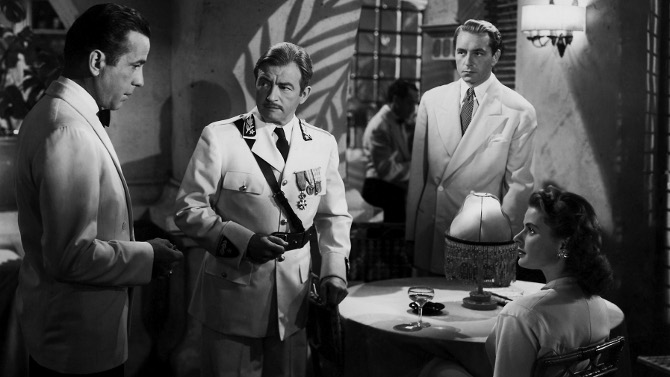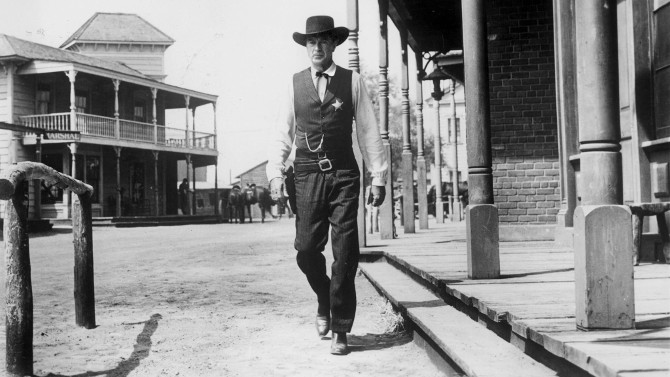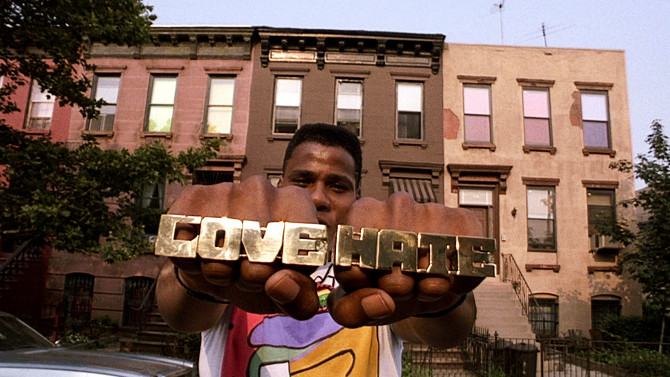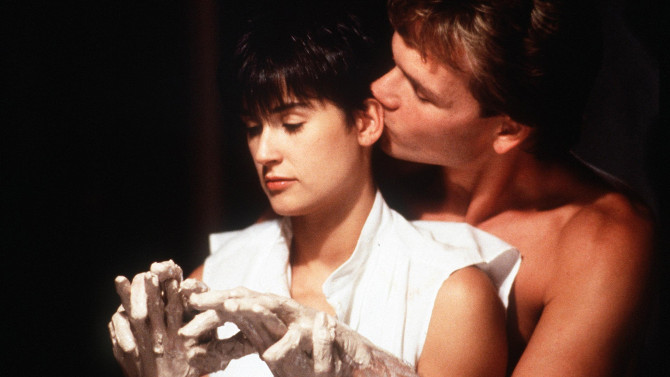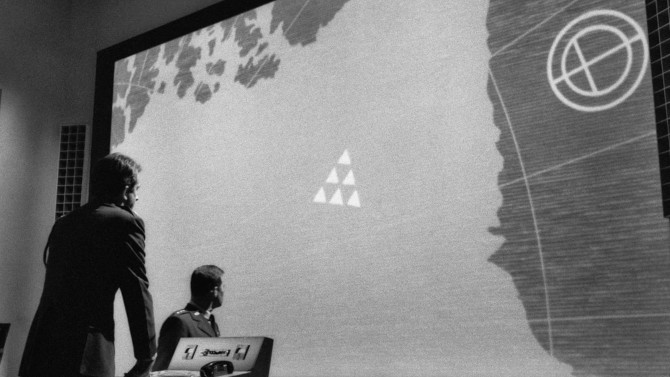
Safety First
Like a severe and utterly serious version of Stanley Kubrick’s 1964 satirical dark comedy Dr. Strangelove or: How I Learned to Stop Worrying and Love the Bomb, you would think that Fail Safe would have been the original release in theatres that was then later spoofed, yet that is not the case. Released approximately six months later in the same year, as you might imagine, it led to very poor returns at the box office – dare I say it (as the film deals with this subject matter)... it was a bomb! Despite that, over time, it has become a bonafide classic. Based upon Eugene Burdick’s 1962 novel of the same name and directed by Sidney Lumet (Dog Day Afternoon), he introduces us to our main players by way of little vignettes.
-
Star Pick with Michael Forest
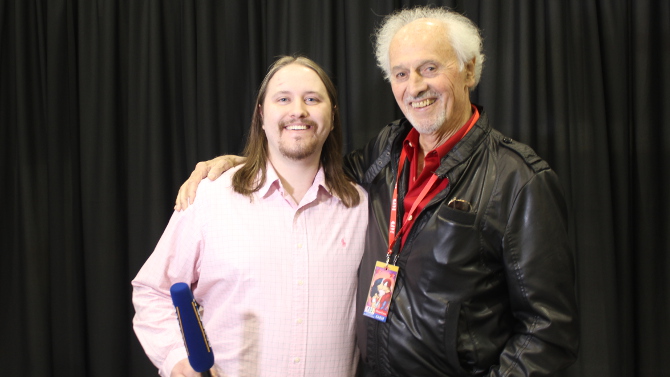 Apollo Re-Visits CasablancaCasablancaJune 14, 2016
Apollo Re-Visits CasablancaCasablancaJune 14, 2016"I remember 3 or 4 weeks before [filming Star Trek], I was working on a western, being beat up, and shot, and one thing and another. . . and then finally killed in the thing; and then a month later I’m in a gold tutu floating around as a God – so you never know in this business. It is very strange". That is a quote from iconic character and voice actor Michael Forest, who has been working in the business for more than sixty years. He humourously summed up life as an actor in the quotation above, referencing work on a western as well his classic turn as the God Apollo (in the episode ‘Who Mourns for Adonais?’) on the television series Star Trek. I was fortunate enough to interview Forest at CAPE, the Cornwall and Area Pop Expo as part of the fiftieth anniversary of the cult classic Star Trek.
-
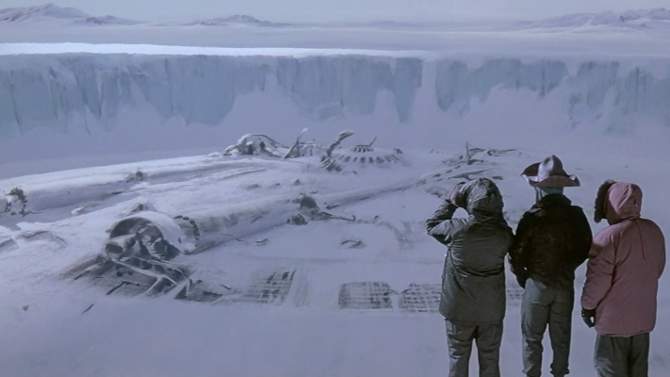
Just One of Those Things
The ThingJune 10, 2016Back in 1982, a sci-fi horror film called The Thing got trashed by critics – perhaps it was due to it coming out around the same time as other sci-fi flicks like E.T. The Extraterrestrial and Blade Runner, or because it was too dark and edgy. . . or maybe it was simply ahead of its time. Funnily enough, it is now considered one of the all-time greats of the horror genre. Critics have come around to see the movie in a much more positive light – which explains why it has been placed onto countless lists that recognize great films, horror or otherwise.
-
Star Pick with John Rhys-Davies
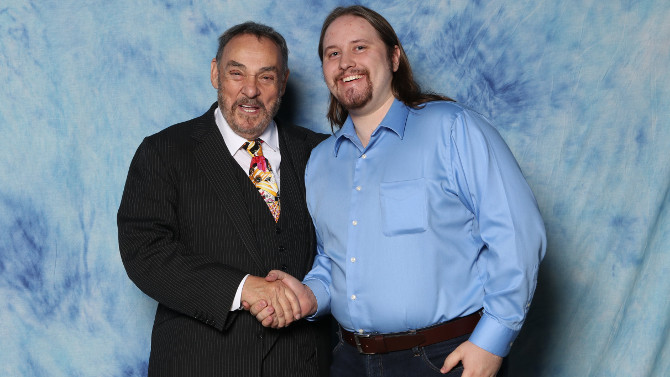 When the Clock Strikes 12High NoonJune 7, 2016
When the Clock Strikes 12High NoonJune 7, 2016There may be no film that better encapsulates the idea of doing what is right or just rather than what is popular or easy than the classic 1952 western High Noon. I recently chatted with iconic character actor John Rhys-Davies, who has created wonderful personas in memorable films such as The Lord of the Rings trilogy (Gimli), Raiders of the Lost Ark/Indiana Jones and The Last Crusade (playing Indiana Jones’ loyal pal Sallah), or portraying General Pushkin in the 1987 James Bond flick The Living Daylights, to name but a few.
-
Star Pick with Brian O'Halloran
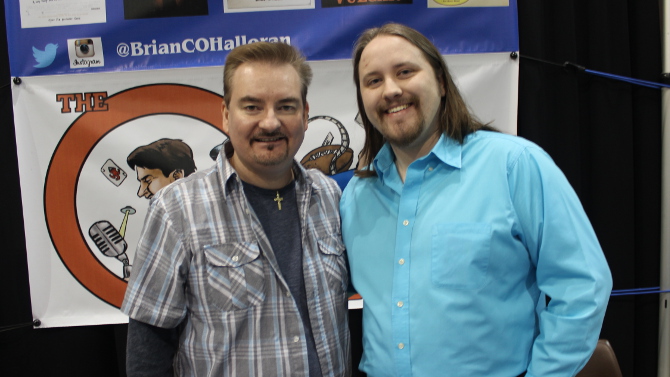 In the Heat of the Day… and NightDo the Right ThingMay 25, 2016
In the Heat of the Day… and NightDo the Right ThingMay 25, 2016Often considered the best film of 1989, Spike Lee’s Do the Right Thing sets the tone early with Rosie Perez (who plays Tina) dancing to Public Enemy’s song "Fight the Power". It was rather interesting to learn that Lee was actually influenced by Ann Margret’s opening in Bye Bye Birdie (which has a very different vibe). In any case, what follows is a powerful, character driven dramedy that widely encompasses life, death, race, poverty and everything in between – all found within the neighbourhood of Bedford-Stuyvesant, Brooklyn.
-
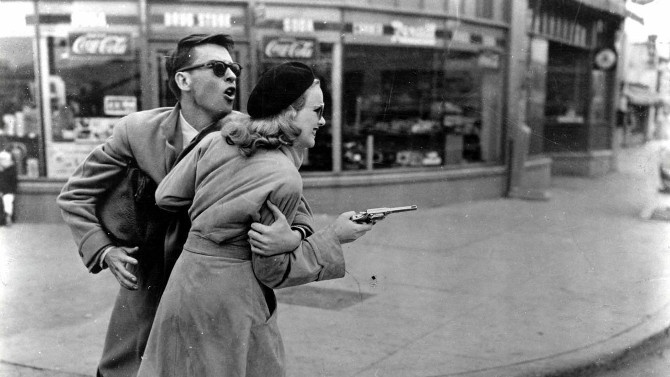
Annie Get Your Gun
Gun CrazyMay 16, 2016I am sure most of you have heard of the classic 1967 crime flick Bonnie and Clyde. Perhaps a film that is lesser known and is also based off of Great Depression bandits Clyde Barrow and Bonnie Parker (though the two characters have different names) is the legendary 1950 film noir Gun Crazy – which, when viewed, will clearly be seen as a precursor to the Warren Beatty and Faye Dunaway offering.
-
Star Pick with Marilyn Ghigliotti
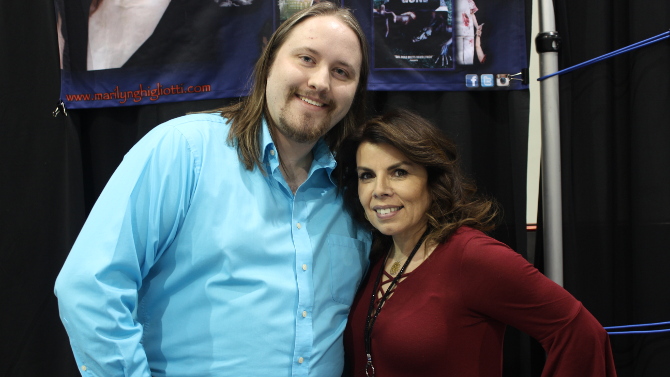 Love After DeathGhostMay 12, 2016
Love After DeathGhostMay 12, 2016There was always something highly entertaining about the late Patrick Swayze, whether he was having a comedic dance off against Chris Farley on Saturday Night Live, or he was the criminal mastermind of a surfer gang in the action flick Point Break. He always brought a charming, entertaining and realistic human side to the characters that he portrayed. One role that epitomises his varied career is the romantic dramedy Ghost.

